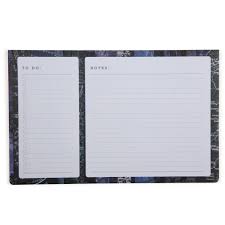When I planned to write about labels, I planned to do it in relation to disability (a post that will still happen, eventually). I didn’t anticipate writing a post on other words I’d use to describe my body, because I didn’t realise I was so attached to them. I didn’t know that seeing them used to describe someone whose shape bears little relation to my own, would bother me quite as much as it did.
I’m talking about this:
https://twitter.com/QuiteBriefly/status/588645821761060864
Yes, she has great tits. And she has a beautiful body. But she’s not ‘gorgeously curvy.’
Before nearly every term to describe someone around the size 16 mark became a euphemism for ‘fat but unwilling to admit it,’ – curvy, voluptuous, OKCupid’s charming ‘a little extra’ – I owned ‘curvy.’ It’s a lovely, sensual word – for me personally, it speaks of boobs, of the hourglass shape that is my natural figure, of muffin top, of a softly rounded tummy. It’s beautiful, it’s feminine, and it makes me feel good.
But when I see women like the model in the photo above described as ‘curvy’ it ceases to mean all those things. Suddenly, I’m not curvy, I’m fat. Unsurprisingly, when I say as much on Twitter, it doesn’t particularly thrill women who are bigger and whose own self-identity is thrown into question when I feel forced to relabel my figure.
I’m not willing to disclose my weight here, but I will share my BMI, which is 28.6. By NHS measurements, that puts me at the upper end of ‘overweight.’ A doctor would say that I’m fat, as would my mum, as did one of my friends. But I understand why, when I use the term to describe myself, it gets people’s backs up.
The problem is that I don’t know how to describe my shape, if curvy ceases to have the meaning I always thought it did. And while I think that everyone ultimately has the right to label themselves as they choose, when I see the word ‘curvy’ captioning a photo of a woman who is more hollows and angles than she is curves, it makes me sad for three reasons. Firstly, because I don’t think we can both be curvy. If she is, I’m not, and if I’m not, I don’t know what I am. Secondly, because the publication that posted the image, Quite Delightful, is ‘designed by women, for women’ but I cannot see how, if that’s what they understand by curvy, their magazine can possibly represent me or many of the women in my life. And lastly, because it suggests to me that curvy is now the shape for everyone to aspire to, and that totally misses the point.
I love the softness of women’s bodies. But curves are not the only acceptable marker of feminine beauty. Think about those things that certainly aren’t curvy – a strong collarbone, delicate wrists, a flat stomach. Those things are beautiful too. As ever, when one thing has been portrayed as the norm for too long – size zero models, concave stomachs, a thigh gap – when the backlash comes, it has a tendency to turn abruptly against those things. It shouldn’t. What we need is a culture where fat and thin are equally accepted, where curvy is just something you are rather than the body shape everyone aspires to, and most of all, where perfectly valid words aren’t repurposed and used to shame people.













